Getting your first company EV? Unsure about the different battery types, charging cables, or tax implications surrounding the use of an EV for work? This crash course has all you need to know…
If you've recently been provided with a new company electric car, or you will be soon, you're sure to have some questions.
Whether you've driven combustion-engine cars for years, or you've recently passed your test, the brave new world of electric cars can be confusing. But in this article we explain all you need to know about charging your work electric car.
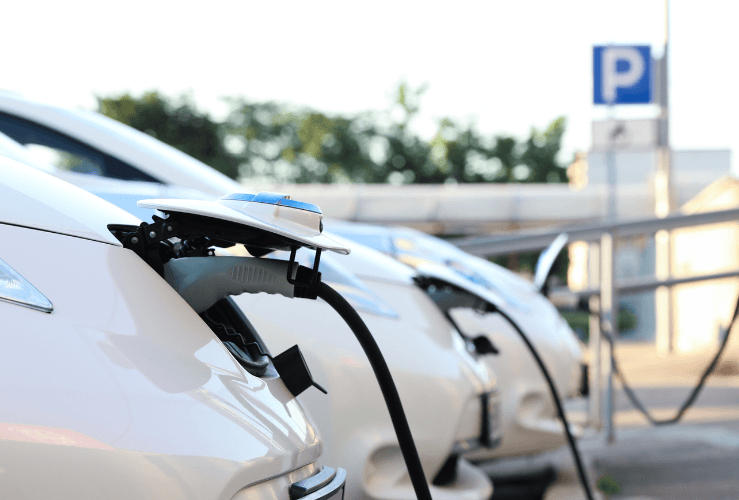
How often should I charge my company EV?
How frequently you'll need to recharge your work electric car will depend on various factors - just as with refuelling a petrol or diesel company car.
Factors include:
- Travel distance
- How hard you accelerate
- Use of things like heating and air con
- Vehicle load
- Whether you turn off the engine in congestion, at traffic lights etc.
So, if you travel long distances on a regular basis with a heavy load, you'll need to recharge more often than someone who drives short distances infrequently, with no load apart from themselves.
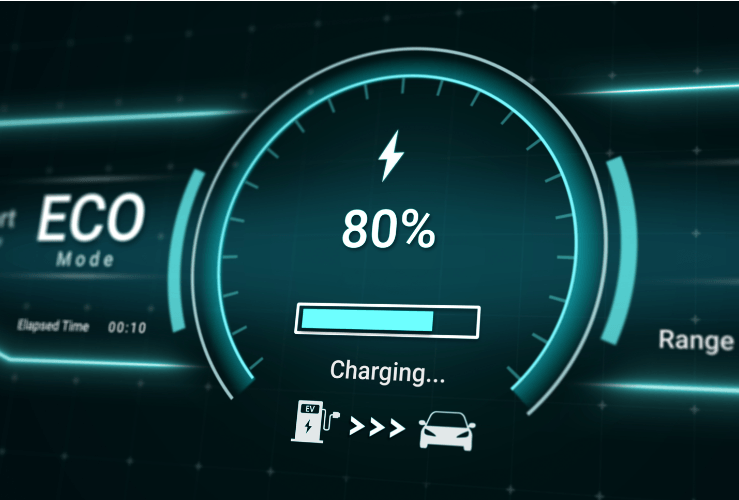
Why should I only charge to 80% capacity?
EV and charger manufacturers recommend users only charge their vehicle to 80%. This helps preserve battery life.
Having to replace an EV battery is expensive - so it’s important to adhere to this rule.
Your company EV will dramatically slow down charging once the battery reaches 80%.
As with lithium-ion batteries in domestic devices, regular, long periods of charging can reduce EV battery life - so is best avoided.
This is in contrast to combustion engine cars, for which being regularly topped up to 'full' is not an issue.
How and when you choose to recharge your work EV will become apparent in the first days and weeks of use. You may decide on short, regular charges if you make frequent short trips; or you may opt for longer overnight charges, and top-up charges when you're on the move.
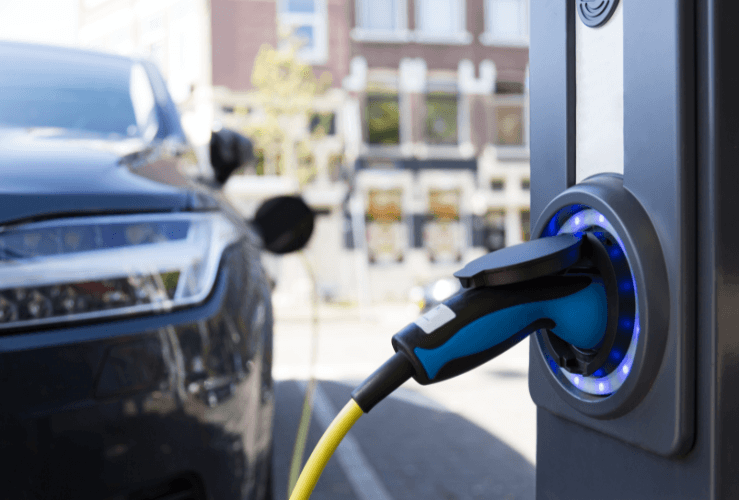
What size/kW charger should I use?
Many EV newbies get confused by all the different kW and kWh figures associated with chargers and batteries. If this sounds like you, you're not alone!
Just as a domestic microwave might have a power rating (e.g. of 1,000W or 1kW), so too does an EV charger - because it delivers power. But as you might expect, the power rating of a charger is much higher - somewhere between 3kW and 300kW, depending on the unit.
But your EV's battery is measured in how many kilowatts are needed to keep it running for one hour - e.g. 95kWh. It's plain to see how much power EVs consume when you consider a 1kW-rated home microwave takes just 1kWh to run for an hour!
So, with lower-output chargers and bigger batteries, the charge time will be longer, while higher-output chargers and smaller batteries will charge more quickly.
What's the difference between 7, 50, and 150kW chargers?
- 7kW chargers - slowest: Best for overnight charging at home, when staying in hotels, or any other long period when you don’t need your car (for instance, if you're using public transport for some work travel).
- 50kW chargers - rapid: These can charge an EV with a smaller battery up to 80% in about half an hour. You'll find these at supermarkets, car parks, and other locations where you're likely to stop off for a short period.
- 150kW chargers - ultra-fast chargers for larger EVs: These can charge a 95kWh battery to 80% in just half an hour.
Are higher capacity batteries always found in bigger EVs?
In short, yes. Just as a fuel-hungry 3-litre engine wouldn’t be put into a small hatchback, a high capacity 93.4kW battery would not belong (or fit!) in a small runabout EV.
It's worth noting these higher capacity batteries are heavy, which means the larger EVs that use them are less efficient than smaller EVs.
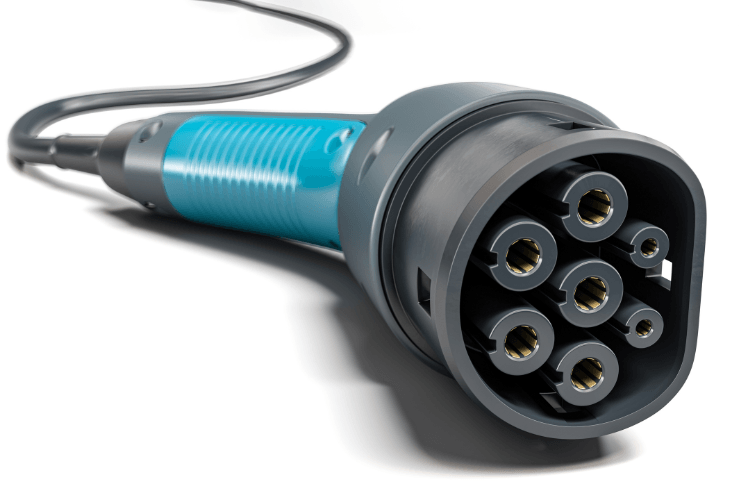
What are the different charging cables?
There are three main charger cables/connectors:
Type 2: 3kW, 7kW, 22kW, 43kW output
- Suitable for slower overnight charging
- Fit almost every EV
- Some vehicles can be charged with this cable using quicker 22kW or 42kW chargers
CHAdeMO: 50kW, 150kW output
- For rapid charging - 50kW (or 150kW on bigger EVs)
- CHAdeMO is the name given to charging ports on EVs made in Korea or Japan
CSS: 50kW, 150kW, 175kW output
- Rapid/ultra-fast charger
- CSS stands for Combined Charging System
- Becoming the standard type in Europe for newer EVs
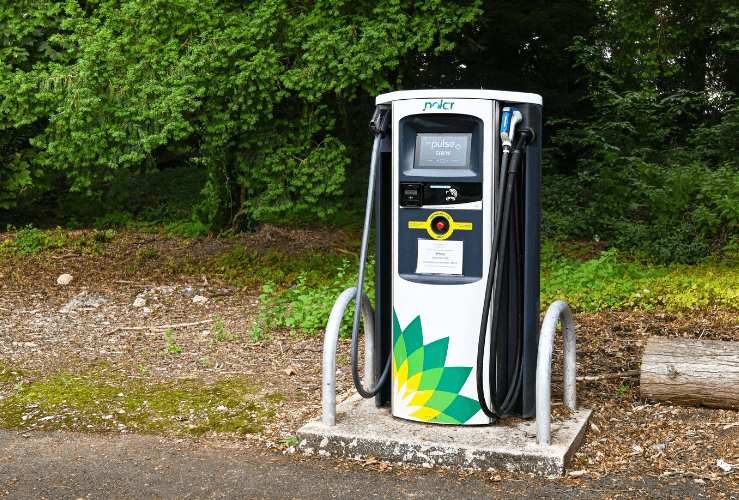
Credit: Cerib - stock.adobe.com
Where's the best place to charge: home, work, or on-the-road?
This depends on the factors outlined above - including battery size, travel distance/frequency, driving style, load, how long your next trip is going to be, and money-saving considerations.
If you have a home charger and are signed up to Economy 7 or 10 overnight rates, home-charging could be an economical choice.
If you travel a lot for work - say, 200 miles a week or more - then you might combine home charging with use of public fast chargers.
Ask your employer if they'll help with the cost of installing a home charger, if you don't have one already.
Alternatively, if your employer has installed chargers in your workplace, it makes sense to use them when possible.
The Workplace Charging Scheme can help employers with the cost of work chargers.
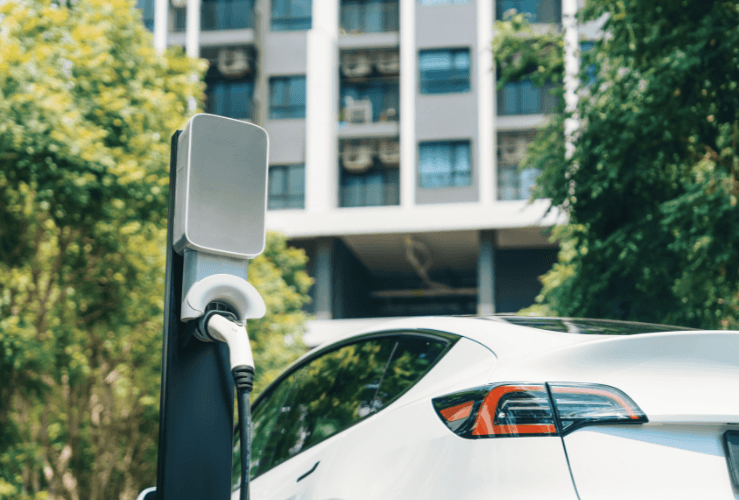
I live in a flat: can I still get a home charger?
If you live in a flat with dedicated off-street parking, you can install a home charger (but you'll need the car park landlord's permission).
You can claim up to 75% off the cost to buy and install a socket, up to a maximum of £350, from the Office for Zero Emission Vehicles.
How do I pay at EV charging stations in the UK?
Increasingly, charge points accept the following payment types:
- Debit/credit card
- Google Pay
- Apple PAy
- Special smartphone apps
- RFID cards
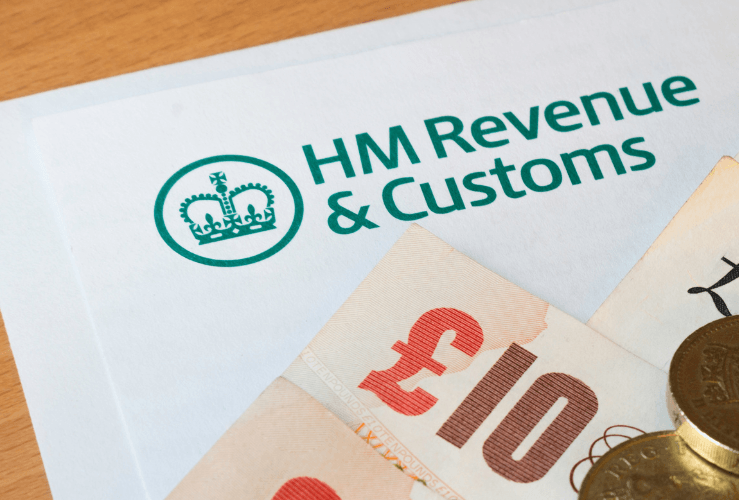
Benefit in Kind (BIK) tax: Do I have to pay it for home charging or charging my employer pays for?
Charging at home:
No BIK due if your employer paid for your home charger and gives you a company EV.
HMRC mileage allowance is a flat-rate of 9p per mile (As of 1st March 2024) for employer-provided EVs, and 45p per mile, or 25p per mile after 10,000 miles, if the employee provided the vehicle.
If you use your own electric car and your employer pays for your home charger, tax and national insurance is payable - since it is considered a benefit.
Charging in the workplace
No BIK to pay if you use an employer-installed charger (whether the vehicle is used for business or private mileage)
Using public charge points
No BIK is due if your employer pays for use of public chargers for your company car.
BIK is due if your employer pays for business and/or personal use when using your own vehicle.
How do I locate the nearest chargepoint?
A number of apps and maps (such as Zap-Map) are available which show chargers near you.
Looking for business breakdown cover?
At Start Rescue, we offer comprehensive business breakdown cover to keep your business vehicles on the road, whether you have a single van or a large commercial fleet. Enjoy reliable protection for cars, motorcycles, vans, and more, ensuring your business stays productive.



